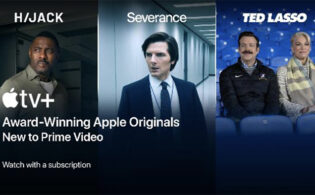Major League Baseball’s (MLB) World Series delivered record audiences in 2024 as more than 30 million viewers across North America and Asia tuned in to see two iconic teams face off: the Los Angeles Dodgers and the New York Yankees. Tomorrow, Apple TV+ premieres Fight for Glory: 2024 World Series, a three-part documentary special that takes viewers inside the storied championship. From Brian Grazer and Ron Howard’s Imagine Entertainment, Fight for Glory is directed by acclaimed filmmaker R.J. Cutler, who jumped at the opportunity to tell the story of the 2024 series, which ended with a Dodgers win after five games.
“We have a partnership with MLB,” Sara Bernstein, president of Imagine Documentaries, tells World Screen Weekly. “MLB was interested in expanding the scope of the programming they’ve traditionally been doing. We started thinking about projects that we could develop together and eventize; stories that we could bring a more humanistic, cinematic experience to. Of course, the World Series came up. We loved the challenge of how we could apply what we do best to something as iconic as the World Series. When we thought about who would be the perfect filmmaker for this, we immediately thought of R.J.—not just because he’s one of the most talented documentary filmmakers out there, but we also knew he was as big a baseball fan as we are.”
Cutler had previously worked with the team from Imagine on the MGM+ docuseries Murf the Surf, about a surfing champ turned thief. He was quick to say yes to the Imagine team when they came calling about Fight for Glory. “Maybe they offered before I accepted—I’m not sure they did,” Cutler quips. “I’m a huge baseball fan. I’ve responded to its beauty since I was a little kid going to Shea Stadium to root for the Mets. I was there in 1969 when they clinched first place in the Eastern Division. I ran out onto the field with my dad and ripped up the sod, and he planted it in our backyard. I have had it in my blood and in my heart for my whole life, like so many of the players whose stories we see. This sport gets to your heart in a really special way. There were so many opportunities here to be cinematic, dramatic, emotional and literary. We start every episode with a beautiful quote. Baseball is a poetic sport, and this was an opportunity to tell these stories in ways that I’ve always hoped to. It was a bit of a pinch-myself moment, to be honest.”
The biggest challenge was time—the championship-winning game was on October 30. “We did it really quickly,” Cutler explains. “We had November, December, January and February—and, by the way, a lot of that is holiday! Then you have to look through the footage and figure out what you’re doing. We edited these episodes over maybe a ten-week period. This goes to having the greatest team in the world. We were all very much on the same page, but we had to be on our toes, figuring it out at every moment. There was very little margin for error. We interviewed [Yankees team member] Aaron Judge maybe two weeks ago!”
MLB has been making films about the World Series for decades, starting the practice in the 1940s for U.S. servicemen stationed overseas during WWII. “We were the beneficiaries of a lot of wisdom,” Cutler notes. “There’s all of this institutional knowledge. We got to bring the filmmaking approach and chops. There was a high degree of difficulty.”
That institutional knowledge included giving the Yankees a bit of breathing room after the tournament. “It was a tough series for them,” Cutler says. “The players were incredibly generous—there were a dozen or so who gave us interviews, but not until they had had a couple of months for the wounds to begin to heal. Our friends at Major League Baseball were like, The Yankees are not going to talk to you for a couple of months!”
The doc, which counts five-time World Series champion Derek Jeter as an executive producer, features coping with defeat as a key theme, Cutler says. “We were exploring very specific themes: family, overcoming adversity, dealing with failure. Baseball is a sport defined by failure. Batting .300—30 percent success. It’s not basketball. You’re not hitting 60 percent of the shots. There aren’t 120 runs scored in a game like there are in basketball. The nature of the sport and the nature of the players—we’re exploring that…. It’s human stories.”






